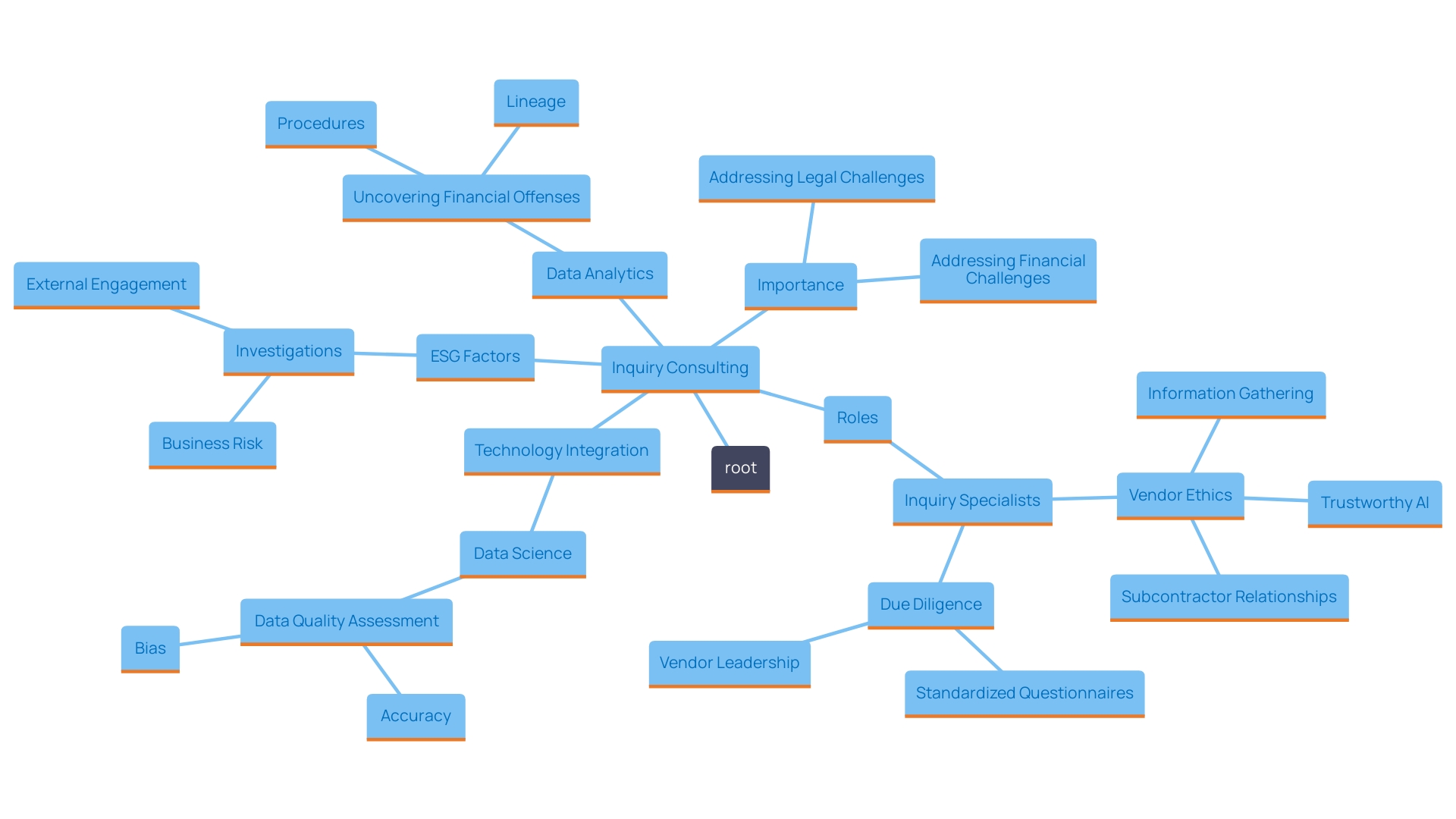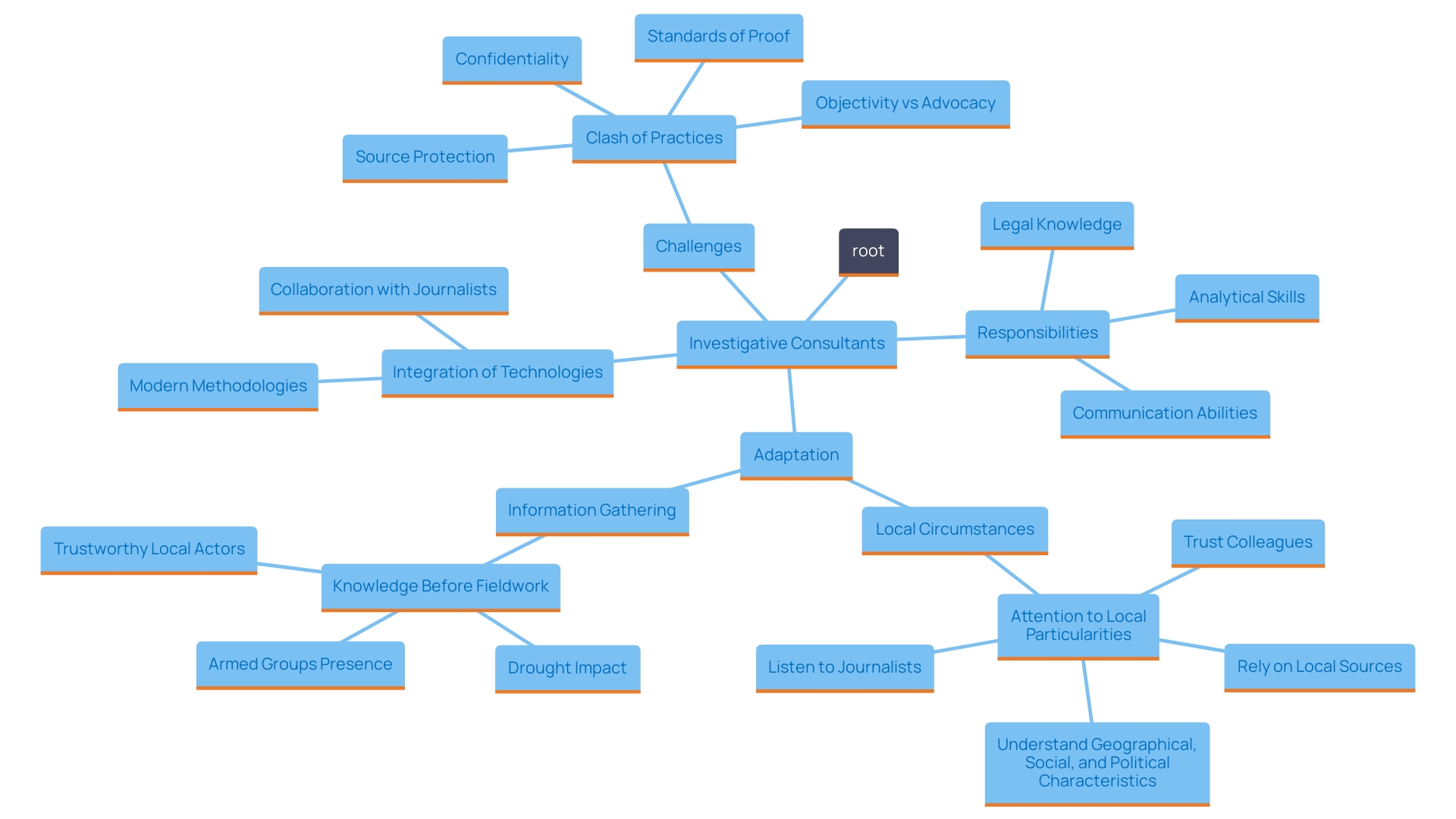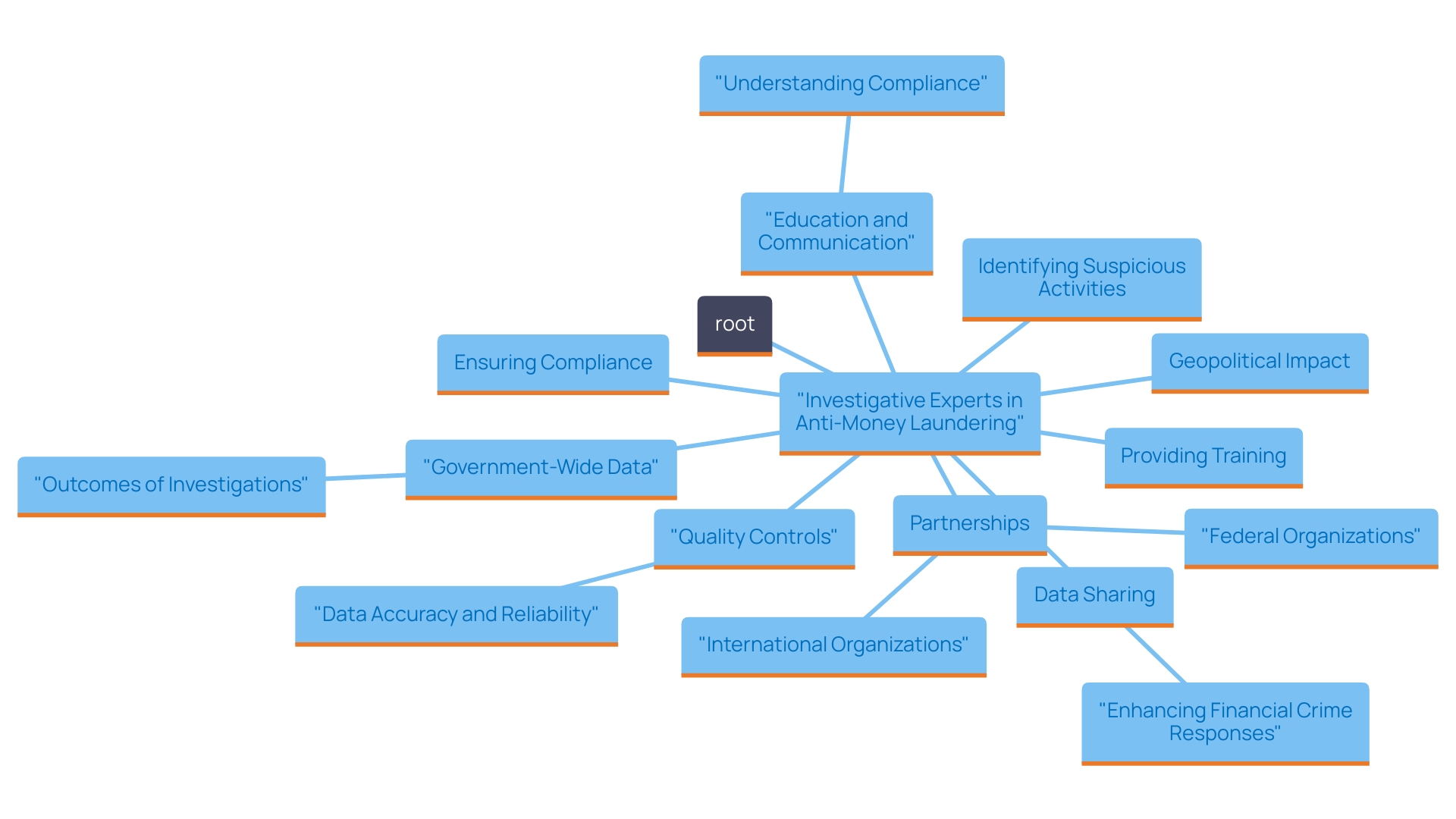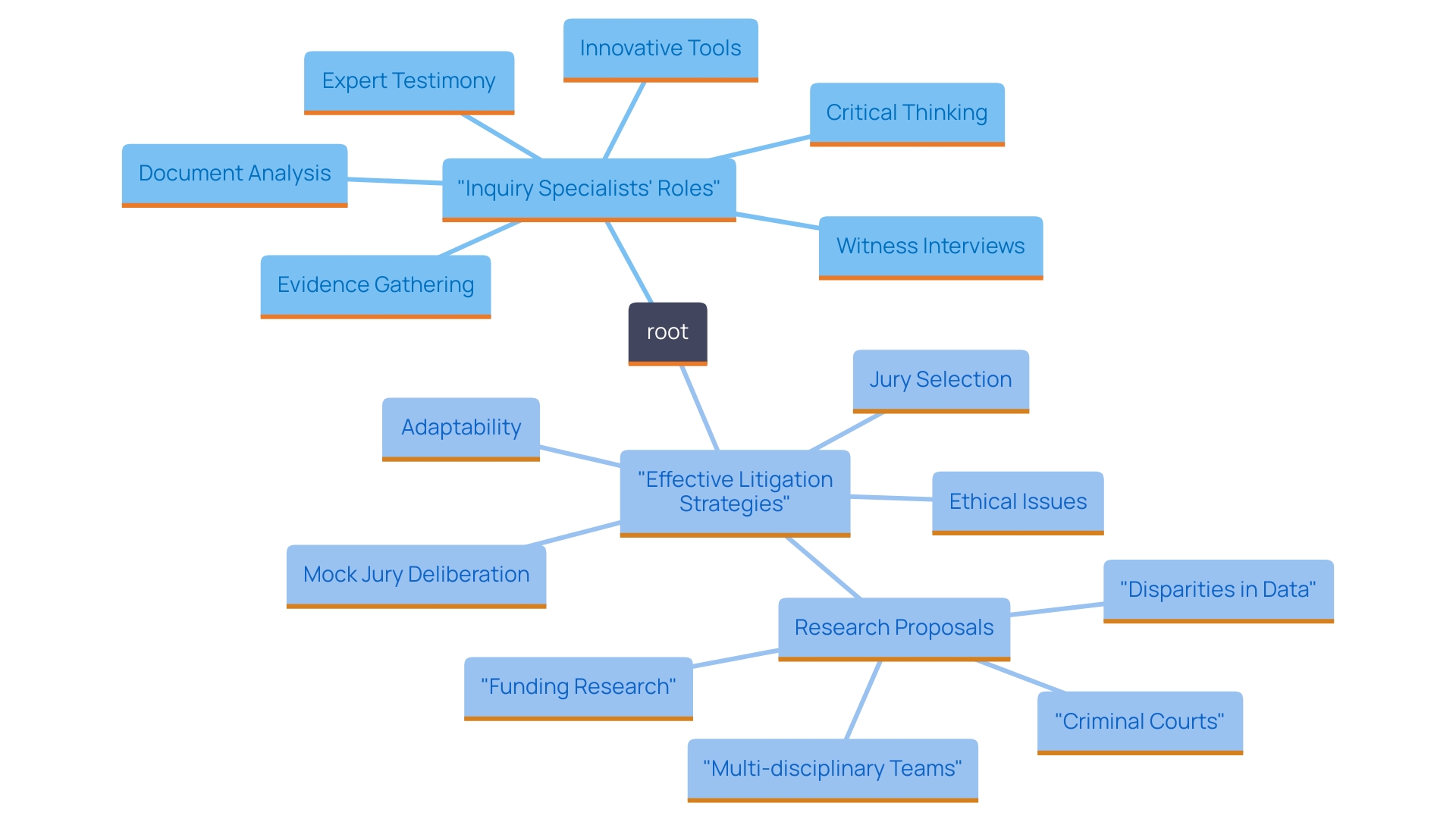Introduction
In a world where legal and financial complexities are ever-increasing, the role of investigative consultants has emerged as a cornerstone for organizations striving to navigate these challenges effectively. These professionals bring a specialized skill set that encompasses forensic analysis, risk assessment, and the development of tailored investigative strategies. As businesses face heightened scrutiny and evolving regulatory landscapes, the demand for these experts is surging.
From anti-money laundering initiatives to litigation support, investigative consultants are not just fact-finders; they are strategic partners who empower organizations to make informed decisions and maintain compliance. This article delves into the multifaceted responsibilities of investigative consultants, their critical impact on various sectors, and the essential skills that define their success in today’s dynamic environment.
Defining the Role of an Investigative Consultant
A research advisor plays a crucial role in navigating intricate legal and financial challenges encountered by organizations today. These professionals specialize in meticulously examining intricate problems, offering a wealth of expertise that is vital for law firms, corporations, and governmental agencies alike. Their work is not merely about uncovering facts; it involves a comprehensive approach that includes forensic analysis, risk assessment, and the formulation of targeted inquiry strategies tailored to the specific needs of their clients.
In light of the evolving landscape of litigation and compliance, the demand for inquiry consultants is on the rise. As noted by industry experts, the intertwining of journalistic inquiry, open-source intelligence (OSINT), and legal practices is reshaping the field of investigation. This trend is anticipated to gain momentum as organizations increasingly acknowledge the significance of incorporating strong inquiry measures into their operations.
For example, recent reports suggest that inquiry specialists are now utilizing advanced data analytics to address financial offenses, as emphasized by the Criminal Investigation division, which reported uncovering tens of billions of dollars associated with various unlawful activities. Such insights emphasize the necessity for organizations to employ experts who can adeptly navigate these complexities and mitigate risks effectively.
Moreover, the increased focus on environmental, social, and governance (ESG) factors has led to a surge in strategic claims by NGOs, putting additional pressure on businesses to ensure compliance and transparency. As inquiries concerning non-financial misconduct continue to rise, the role of consulting experts becomes even more crucial. They not only assist organizations in managing potential risks but also guide them in establishing clear communication protocols during investigations, ensuring that sensitive information is handled appropriately.
The future of inquiry consulting appears promising, particularly as firms adapt to the growing integration of technology and legal practices. As organizations get ready for the challenges of 2024 and beyond, the knowledge of inquiry specialists will undoubtedly be essential in promoting accountability and nurturing a culture of integrity.

Key Responsibilities and Skills of an Investigative Consultant
Investigative consultants play a vital role in navigating complex scenarios that demand a multifaceted skill set. Their responsibilities encompass conducting in-depth research and analysis, meticulously gathering and evaluating evidence, and crafting comprehensive reports that convey their findings effectively. Mastering the art of communication is essential, as these professionals must articulate their insights to clients and stakeholders in a clear and persuasive manner. In this dynamic environment, strong analytical skills and keen attention to detail are paramount. Moreover, a thorough understanding of legal frameworks is crucial for ensuring compliance and directing inquiry strategies.
The capacity to adjust to different local circumstances greatly improves the success of research efforts. For instance, when working across different regions, consultants must be attuned to language barriers, cultural nuances, and even currency differences that can impact project management. They must immerse themselves in the geographical, social, and political landscapes relevant to their investigations, as insights from local journalists and sources can provide invaluable context. This local knowledge not only aids in effective planning but also ensures the safety of all team members involved in fieldwork.
In today's fast-evolving research landscape, staying abreast of the latest technologies and methodologies is imperative. As journalistic inquiry increasingly intersects with OSINT (Open Source Intelligence) and legal frameworks, embracing innovative tools can significantly enhance data collection and analysis processes. For example, developing databases that catalog information on armed groups or critical infrastructure can streamline operations and bolster security assessments for field teams. Engaging with these advanced strategies positions investigative professionals to meet the challenges of modern inquiries directly, ensuring they remain effective and influential in their functions.

Importance of Investigative Consultants in Anti-Money Laundering
Investigative experts are indispensable in the realm of anti-money laundering (AML) efforts, serving as a critical line of defense for organizations against financial crimes. Their expertise not only aids in identifying suspicious activities but also ensures compliance with ever-evolving regulatory frameworks. Consultants assist businesses in designing comprehensive AML programs, conducting thorough risk assessments, and implementing effective transaction monitoring systems. By meticulously analyzing patterns and anomalies within financial data, they play a pivotal role in detecting potential money laundering schemes, empowering clients to take preemptive measures before any regulatory violations occur.
Moreover, the training and support offered by these advisors help cultivate a culture of compliance within organizations. This is particularly crucial in light of recent developments, such as the international sanctions imposed following geopolitical events, which have heightened the scrutiny on financial operations. For instance, the sanctions targeting individuals associated with the Russian military have led to an increased demand for professional AML services to navigate complex asset concealment tactics employed by sanctioned entities.
The partnership of inquiry specialists with several federal and international organizations is also significant. Agencies, including the Departments of Justice and Homeland Security, individually track outcomes of illicit finance investigations, yet the fragmented nature of data collection often leads to incomplete insights. Through public-private partnerships, like those facilitated by firms such as Verafin, there is a concerted effort to improve information sharing between banks and regulatory bodies, enhancing the overall response to financial crime threats. As the landscape of money laundering changes, the function of inquiry specialists becomes increasingly crucial in protecting organizations from financial wrongdoing and ensuring regulatory adherence.

The Role of Investigative Consultants in Litigation Support
In the intricate realm of litigation assistance, inquiry specialists play a crucial role in shaping case preparation and trial strategies. These professionals are tasked with the meticulous gathering of evidence, conducting thorough interviews with witnesses, and analyzing a wide array of documents pertinent to the case. Their insights are not merely supplementary; they can drastically alter the trajectory of strategies and outcomes. The commitment to critical thinking is paramount in this field. As one expert observed, 'The thing about expert witness work is that it requires relentless critical thinking. Not just thinking critically about the topic, but about one’s own work.' This level of scrutiny ensures that the evidence presented is not only robust but also strategically advantageous. Furthermore, by delivering expert testimony and comprehensive reports, investigative consultants empower attorneys to articulate their cases with clarity and authority, making them indispensable assets in high-stakes litigation scenarios. Their involvement often leads to more informed decision-making processes that can significantly reduce risks associated with disputes. As the legal landscape evolves, especially with the rise of digital technologies and the growing emphasis on data security, the integration of innovative tools is becoming increasingly important. This shift underscores the need for investigative consultants to remain adaptable and knowledgeable in their approach, ensuring that they continue to provide the highest level of support in an ever-changing environment.

Conclusion
The role of investigative consultants has become increasingly critical in today’s complex legal and financial landscape. Their specialized skills in forensic analysis, risk assessment, and strategic planning are essential for organizations facing heightened scrutiny and regulatory challenges. From anti-money laundering initiatives to litigation support, these professionals not only uncover facts but also provide strategic insights that empower organizations to navigate risks effectively and maintain compliance.
As the demand for investigative consultants continues to surge, their multifaceted responsibilities are more important than ever. They bring a wealth of expertise that enables organizations to design robust compliance programs, conduct thorough investigations, and foster a culture of accountability. The intersection of technology and investigative practices further enhances their capabilities, allowing them to leverage advanced tools and methodologies to meet the evolving challenges of modern inquiries.
In summary, the contributions of investigative consultants are vital for organizations aiming to mitigate risks, ensure compliance, and uphold integrity. By integrating these experts into their operations, businesses can navigate complexities with confidence, making informed decisions that safeguard their interests and promote transparency. As the landscape continues to evolve, the strategic partnership with investigative consultants will undoubtedly be a key factor in achieving long-term success and resilience.




